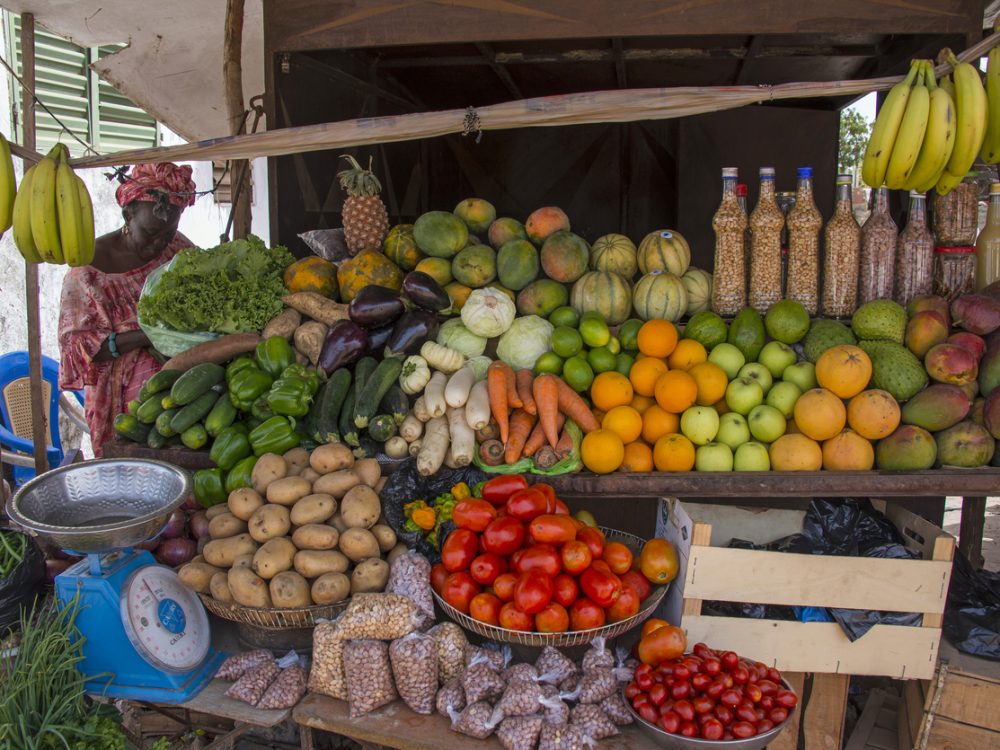
Five Insights on Country-Led Digital Public Infrastructure Systems to Create a Cohesive Approach throughout Africa
This blog is the second in our series exploring digital public infrastructure. From DG’s more than 20 years of experience in creating, delivering, and adapting open source and open data solutions, we’ve learned several best practices on how to make technology accessible and sustainable while prioritizing engagement from open source communities—these practices can be applied to building and implementing digital public infrastructure. Check out the other blogs in this series.
As the impetus to build digital public infrastructure (DPI) systems continues to gain momentum throughout Africa, efforts are needed to ensure African governments have the tools, knowledge, and skills to define and implement their own DPI priorities. Achieving success in this endeavor requires: (1) country-led efforts to ensure country-specific opportunities and limitations are addressed while creating DPIs; (2) cross-country collaborations and shared learning mechanisms; and (3) integrated and unified action from the continent, rather than fragmented efforts. Drawing from Development Gateway: An IREX Venture’s (DG’s) work in implementing country-specific digital solutions that support a cohesive approach across a given region or continent (e.g., DG’s work in tobacco control data and youth), we have identified five insights on how to go about implementing DPIs at the country-level while having a cohesive approach throughout Africa.
Current State of DPI in Africa: Strategy, Initiatives, Legislation, and Resources
Creating DPIs aligns with the continent’s strategic vision for Africa’s future; specifically, the overall objective of the African Union’s Digital Transformation Strategy for Africa (2020-2030) is to “harness digital technologies and innovation to transform African societies and economies to promote Africa’s integration, generate inclusive economic growth, stimulate job creation, break the digital divide, and eradicate poverty for the continent’s socio-economic development and ensure Africa’s ownership of modern tools of digital management.” With this strategy in mind, building country-led DPIs will help transform African societies by providing easier access to public goods and services. Cross-country learning and action will promote a cohesive approach to implementing DPI in the Africa context further transforming African societies.
Currently, DPI is taking center stage in several regional initiatives. One example is the 50-in-5 initiative aimed at sharing learnings, best practices, and technologies that can support the implementation journeys for DPI and has commitments from Togo, Senegal, Ethiopia, Sierra Leone, and Malawi. There have also been several country-level initiatives throughout Africa, including Uganda’s NBI/EGI project, Ghana’s ‘e-Transform,’ Zambia’s efforts to foster digital inclusion and the Open Government Partnership including digital governance in some country-level commitments, as seen in Kenya’s Action Plan (2023 – 2027).
Additionally, according to DIAL, countries including Kenya, Sierra Leone, Uganda, Rwanda, and Senegal have already developed legislation and policies around topics relevant to DPIs, such as digital transformation and digital economy.
Finally, several resources that can support developing or expanding DPIs already exist, including the Centre for Digital Public Infrastructure and GovStack.
Challenges to Implementing DPI across Africa
While the appetite and resources available for rolling out DPI systems in Africa are strong, the continent will need to address unique infrastructure challenges which aren’t present in other regions. For example, the percentage of Africa’s Internet users (i.e., Internet penetration rate) is much lower at 36% compared to Asia’s rate of 67.4% and compared to states in the European Union, which is an 89% rate. According to the World Bank, “[i]ncreased accessibility to broadband services, accompanied by enhanced affordability and service quality, leads to higher inclusion.” Therefore, to have DPI systems that truly serve residents, African states must prioritize Internet connectivity to achieve inclusion.
In addition to the challenges faced throughout Africa, certain regions of Africa may face unique obstacles. For example, according to the World Bank, sub-Saharan Africa faces an underdeveloped digital infrastructure, inaccessible and unaffordable Internet connectivity, a gender gap, and other region-specific issues that could present a challenge to developing DPIs.
In order for African countries to inclusively and equitably offer digital services at a societal scale, the continent must: align existing digital frameworks that are well-defined at the subnational, national, regional, and continental levels in order to address exclusion due to infrastructure challenges. Here are five insights that may support such efforts.
Five Insights on Building Country-Level DPI Systems to Support a Continental Approach
- Countries should build DPIs from already existing frameworks, approaches, and initiatives in order to avoid duplicating and sidelining the progress African countries have made towards digital transformation. This can be achieved at the country-level by conducting landscaping assessments that will give a holistic understanding of the country’s existing data and digital ecosystem, regulatory frameworks, underlying existing systems, mandates, and skill gaps.
At DG, we use the CALM assessment methodology to conduct data landscape assessments and recommend data and digital solutions that will benefit societies, especially children, women, and other underserved populations. We also adapt our open source solutions, like DG’s Aid Management Platform and Open Contracting Portal, for new contexts in order to address some of the needs identified from the assessment. - Africa should take a step-by-step, country-led approach that acknowledges digital sovereignty for countries to determine how best to build and implement their DPIs based on their own context and priorities. This approach can include either scaling already existing solutions, private sector investments in infrastructure, and/or complementing physical access to cater to infrastructure barriers. An example of complementing physical access is in Rwanda where the government established kiosks where citizens can use mobile money transfers to sell and load public transport cards.
- Countries should ensure that available resources are channeled to the most pressing needs. With all the currently available support and expertise, African governments must be strategic in how they own and drive DPI implementation.
- Expertise should be built at the country-level in both the private sector and in government. These expertise can help ensure the sustainability of DPIs beyond the technical and financial support provided via all the currently available initiatives and help maintain the digital infrastructure and its use.
- Foster cross-country collaboration and learning. Cross-country collaboration and learning mechanisms can be used to ensure DPI implementation at the country and regional level upholds Africa’s broader digital principles of safeguarding human rights, upholding security, and ensuring equitable access and sharing of benefits. Fortunately, Africa has several regional policy frameworks that countries can leverage as they build their DPIs, including the AU Data Policy Framework; the AU Convention on Cybersecurity and Personal Data Protection; the African Charter on Human and People’s Rights; the AfCFTA Agreement; and the African Union’s Digital Transformation Strategy for Africa (2020-2030).
Next Steps
Across Africa, DG has made it a priority to ensure data and digital solutions are tailored to specific country needs and always with the final person using the system in mind; DPIs provide an opportunity to do this on a new scale. Working through our hubs in West and East Africa, DG continues to support governments in prioritizing digital systems that fit citizen needs and ecosystem approaches that ensure cross-country learning and cohesion.
Stay tuned for the next installments of this DPI series in which we’ll explore practical approaches to rolling out DPIs; impactful use cases; challenges and solutions to implementing DPI; and more!
Share
Recent Posts

Development Gateway Collaborates with 50×2030 Initiative on Data Use in Agriculture
Development Gateway announces the launch of the Data Interoperability and Governance program to collaborate with the 50x2030 initiative on data use in agriculture in Senegal for evidence-based policymaking.

Strengthening Online Safety Through Prevention in the Philippines
Tech-Facilitated Gender-Based Violence continues to evolve alongside emerging technologies. This blog explores how preventative measures, such as the Safety By Design approach, can be used to create a safer internet.

Preparing Jordan’s Education System for the AI Age
This blog introduces Asas, an early grade education program led by IREX and DG in partnership with Jordan’s Ministry of Education, and explores what AI readiness looks like in early grades and how AI can be integrated safely and sustainably into education systems.